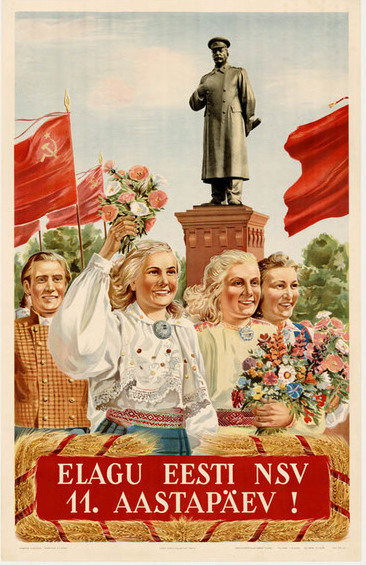Time and Story in Culture
How does cultural memory function, and what are its main tasks? How is history connected to power, and why do conflicts of memory develop?

Poster: “Viva the SSR of Estonia on their 11th anniversary!”
From the perspective of culture, there is no clear distinction between the past and the future. The past lives in the present through writings and images, buildings and monuments, documents and inheritances. The role of all of these is both the mediation of the culture’s story (its formation and continuity), as well as to reinforce the identity of the culture’s members. Furthermore, the stories told about the past are always the products and interpretations of their time. Therefore, it always pays to ask why authors have chosen a specific story, at a specific time, and told it in a specific way.
In this section, we explore how cultural memory functions and the main tasks of cultural memory. We also investigate how history is linked with power, and how conflicts of memory occur.